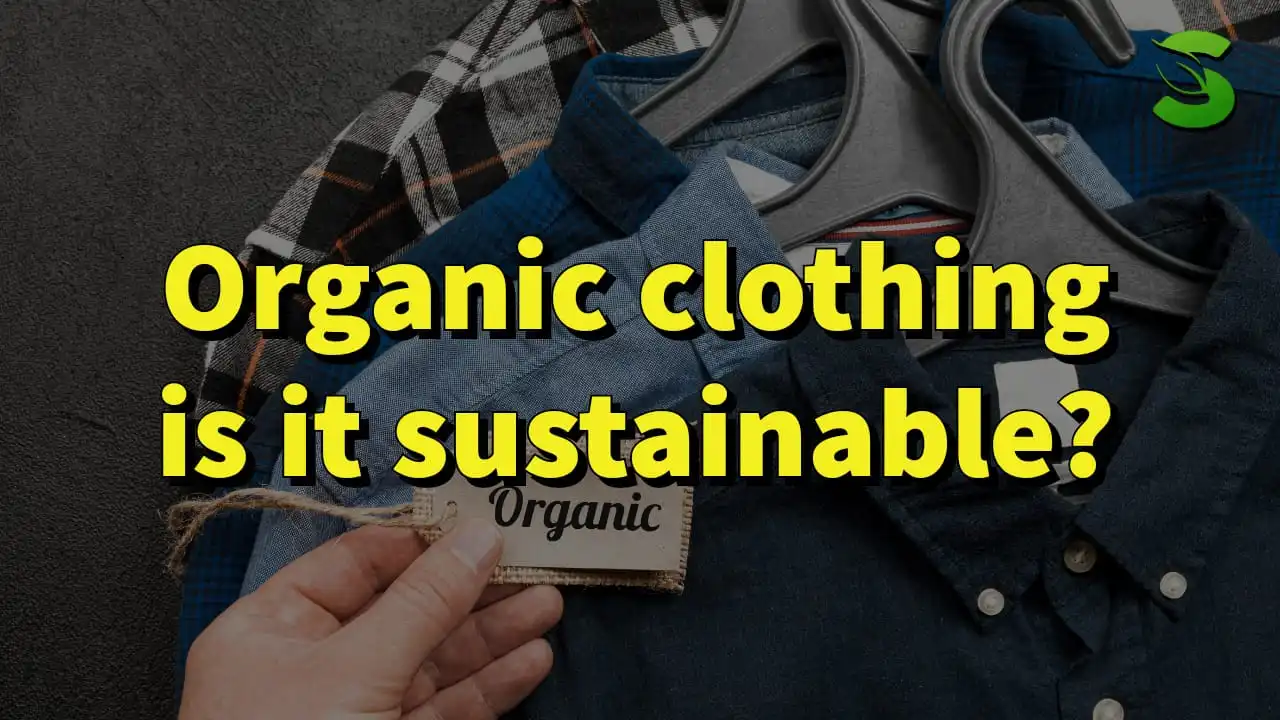In a world increasingly focused on sustainability, the question of whether organic clothing is truly sustainable has gained prominence. As consumers, we want to make responsible choices that not only benefit us but also the environment. This article will delve into the world of organic clothing, exploring its eco-friendly advantages, the methods behind its production, and much more. If you’re curious about the sustainability of organic clothing, keep reading to discover the answers you seek.
The Rise of Organic Clothing
Organic clothing has gained significant popularity in recent years. Consumers are becoming more aware of the environmental impact of the fashion industry. As a result, they are turning to organic clothing as a sustainable alternative. But what exactly is organic clothing, and how does it contribute to sustainability?
Organic clothing is it sustainable? Let’s explore:
What Is Organic Clothing?
Organic clothing is made from materials that are grown without the use of synthetic pesticides, herbicides, or genetically modified organisms (GMOs). These materials are often sourced from organic farms, where sustainable agricultural practices are prioritized.
Advantages of Organic Clothing
Organic clothing offers several advantages that contribute to its sustainability:
1. Eco-Friendly Materials
Organic clothing is crafted from natural fibers like organic cotton, hemp, and bamboo. These materials are biodegradable and have a lower environmental impact compared to synthetic fabrics.
2. Chemical-Free Production
The absence of synthetic pesticides and herbicides in organic farming leads to reduced chemical pollution. This not only benefits the environment but also the health of those involved in the production process.
3. Sustainable Farming Practices
Organic clothing is produced using sustainable farming methods that prioritize soil health, crop rotation, and water conservation. These practices help maintain the long-term health of ecosystems.
4. Energy Efficiency
The production of organic clothing often requires less energy compared to conventional methods, making it a more eco-friendly choice.
The Production Process
To understand the sustainability of organic clothing, it’s crucial to examine the production process in detail.
Organic Cotton Farming
Organic cotton is a primary material used in organic clothing. It is cultivated through eco-conscious practices, which include:
- Non-GMO seeds
- Natural pest control methods
- Reduced water consumption
These methods result in cotton that is both soft and environmentally friendly.
Sustainability and Fair Trade
Many organic clothing brands are also committed to fair trade practices. They ensure that workers are paid fair wages and operate in safe conditions. This ethical approach not only supports human rights but adds another layer of sustainability to the industry.
Organic Clothing Is It Sustainable? FAQs
Let’s address some common questions regarding the sustainability of organic clothing:
Is organic clothing more expensive than conventional clothing?
Yes, organic clothing can be more expensive. However, it’s essential to consider the long-term benefits for the environment and your health.
How can I identify genuine organic clothing?
Look for certifications such as GOTS (Global Organic Textile Standard) or USDA Organic. These labels guarantee that the clothing is genuinely organic.
Does organic clothing have a limited style range?
Not at all. Organic clothing is available in a wide variety of styles, from casual wear to formal attire.
Are there any drawbacks to organic clothing?
One potential drawback is the higher initial cost, but the long-term benefits in terms of sustainability and comfort often outweigh this.
Can I contribute to sustainability by choosing organic clothing?
Absolutely! By opting for organic clothing, you support sustainable farming practices, reduce chemical pollution, and help create a more eco-friendly fashion industry.
How do I care for organic clothing?
Caring for organic clothing is similar to caring for conventional clothing. Follow the care instructions provided by the manufacturer.
Conclusion
In conclusion, organic clothing is indeed a sustainable choice. It offers numerous advantages, from eco-friendly materials to ethical production methods. While it may come at a slightly higher cost, the long-term benefits for the environment and your well-being make it a wise investment.
So, if you’re committed to making environmentally responsible choices in your wardrobe, consider adding organic clothing to your collection. You’ll not only look good but also feel good about your contribution to a more sustainable future.
Also Read | Sustainable Fashion: A Path to a Greener Future







